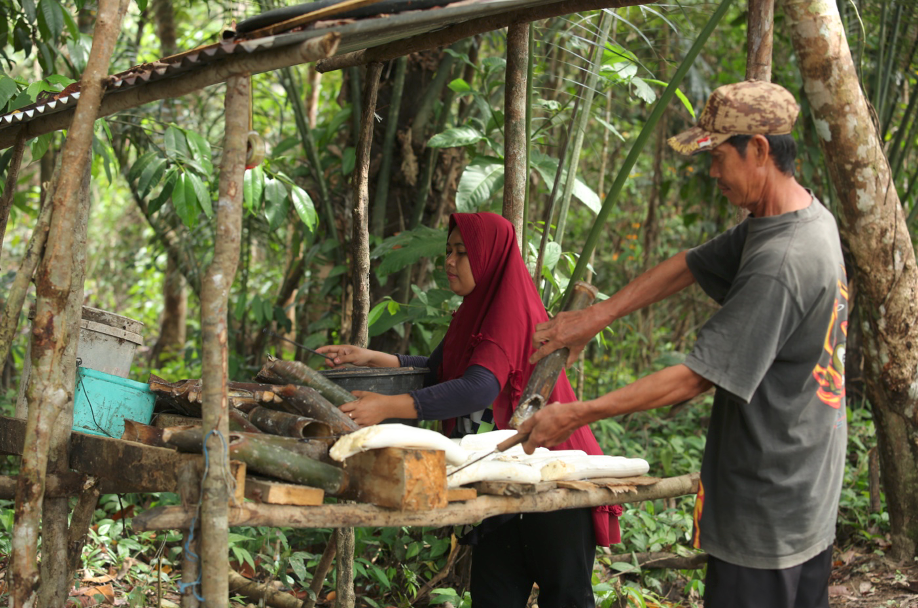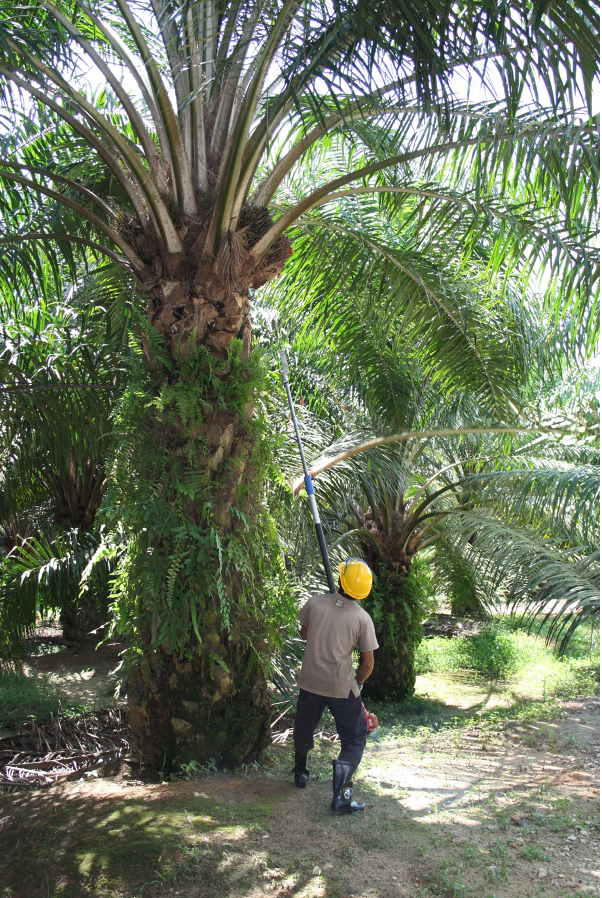The SAFE Challenge in Indonesia: Call for Ideas!

Consumers in the European Union (EU) are increasingly demanding products that are produced in a sustainable way and not contributing to deforestation. To address such emerging challenges, the EU is supporting partner countries to accelerate the inclusive transition into sustainable, deforestation-free and legal agricultural production. One such support measures is the Sustainable Agriculture for Forest Ecosystems (SAFE) project.

SAFE Project
The SAFE project is co-funded by the European Union and Germany’s Federal Ministry for Economic Cooperation and Development. It is implemented in Brazil, Ecuador, Indonesia, and Zambia with each country representing different contexts and commodities.
In Indonesia, the SAFE project (September 2022–May 2026) is implemented in cooperation with the Ministry of National Development Planning (BAPPENAS) by using the SAFE Challenge as a way to test interventions, collect learnings, and feed into policies.

SAFE Challenge Offers
The SAFE Challenge is a matching fund facility that supports private-sector initiatives in promoting sustainable, deforestation-free, and legal agricultural commodity production.
Stakeholders from the oil palm, natural rubber, and cocoa sectors affected by the European Deforestation Regulation (EUDR) are invited to submit ideas that address constraints in EUDR-compliance for ensuring an inclusive transition of smallholders’ practices to sustainable and deforestation-free production.
SAFE selects the best ideas and, together with idea submitters, develops relevant and scalable pilot projects in West Kalimantan and Central Sulawesi. The winning project will then be jointly implemented by the idea submitters and the SAFE project. Throughout implementation, best practices and learnings are shared and fed into regulation and policy frameworks on national, regional, and global levels.
Eligible Applicants
The SAFE Challenge is open for companies as part of the export supply chains of palm oil, natural rubber, and cocoa to the EU market, including traders, processors, or manufacturers. Companies can apply as a single entity or as a lead in a consortium with CSOs, NGOs, associations, farmer organisations, research organisations, consulting services, and others. Non-business entities (NGOs, CSOs, associations, and others) are welcome to apply, provided that they have a collaboration with companies meeting the criteria above acting as the consortium lead.

Application and Selection Process
Interested applicants can submit their ideas on bit.ly/SAFEChallenge2023 from August to September 2023. Information on the selection criteria and information requested in the call for ideas and can be found on bit.ly/SAFEChallengeInfo.
The selection panel will shortlist up to 10 ideas based on the selection criteria and inform the pre-selected idea submitters by mid-September 2023. Pre-selected idea submitters will receive feedback, guidance, and a document template for developing the concept note. SAFE will provide a coaching session to refine draft concept notes. The idea submitter will present the concept note to the selection panel by early October. The selection panel will select up to 5 concept notes and inform the final awardees in October 2023.

Consumers in the European Union (EU) are increasingly demanding products that are produced in a sustainable way and not contributing to deforestation. To address such emerging challenges, the EU is supporting partner countries to accelerate the inclusive transition into sustainable, deforestation-free and legal agricultural production. One such support measures is the Sustainable Agriculture for Forest Ecosystems (SAFE) project.
SAFE Project
The SAFE project is co-funded by the European Union and Germany’s Federal Ministry for Economic Cooperation and Development. It is implemented in Brazil, Ecuador, Indonesia, and Zambia with each country representing different contexts and commodities.
In Indonesia, the SAFE project (September 2022–May 2026) is implemented in cooperation with the Ministry of National Development Planning (BAPPENAS) by using the SAFE Challenge as a way to test interventions, collect learnings, and feed into policies.
SAFE Challenge Offers
The SAFE Challenge is a matching fund facility that supports private-sector initiatives in promoting sustainable, deforestation-free, and legal agricultural commodity production.
Stakeholders from the oil palm, natural rubber, and cocoa sectors affected by the European Deforestation Regulation (EUDR) are invited to submit ideas that address constraints in EUDR-compliance for ensuring an inclusive transition of smallholders’ practices to sustainable and deforestation-free production.
SAFE selects the best ideas and, together with idea submitters, develops relevant and scalable pilot projects in West Kalimantan and Central Sulawesi. The winning project will then be jointly implemented by the idea submitters and the SAFE project. Throughout implementation, best practices and learnings are shared and fed into regulation and policy frameworks on national, regional, and global levels.
Eligible Applicants
The SAFE Challenge is open for companies as part of the export supply chains of palm oil, natural rubber, and cocoa to the EU market, including traders, processors, or manufacturers. Companies can apply as a single entity or as a lead in a consortium with CSOs, NGOs, associations, farmer organisations, research organisations, consulting services, and others. Non-business entities (NGOs, CSOs, associations, and others) are welcome to apply, provided that they have a collaboration with companies meeting the criteria above acting as the consortium lead.
Application and Selection Process
Interested applicants can submit their ideas on bit.ly/SAFEChallenge2023 from August to September 2023. Information on the selection criteria and information requested in the call for ideas and can be found on bit.ly/SAFEChallengeInfo.
The selection panel will shortlist up to 10 ideas based on the selection criteria and inform the pre-selected idea submitters by mid-September 2023. Pre-selected idea submitters will receive feedback, guidance, and a document template for developing the concept note. SAFE will provide a coaching session to refine draft concept notes. The idea submitter will present the concept note to the selection panel by early October. The selection panel will select up to 5 concept notes and inform the final awardees in October 2023.
The SAFE projects calls all SNRD colleagues to share the news about the SAFE challenge in their networks and we are happy to assist other projects in the setting up of similar processes.
Contact Information
If you have any questions, you can contact us at SAFEChallenge@giz.de
Link to the further materials
Information Pack: bit.ly/SAFEChallengeInfo
Information Pack: bit.ly/SAFEChallengeInfo
Submission Form: bit.ly/SAFEChallenge2023
Contact Person
Cecilia Novarina
Key Buzzwords
Sustainability, Deforestation-free, Value Chain, Sustainable Value Chain, Indonesia, Forest, FOLU, West Kalimantan, Central Sulawesi, Gender, Innovation

